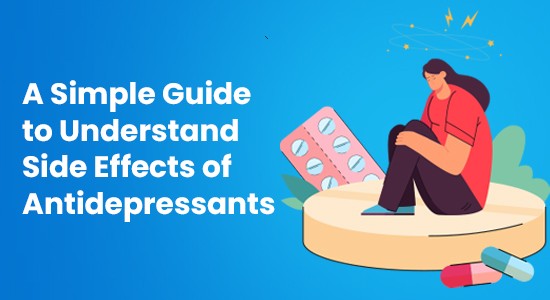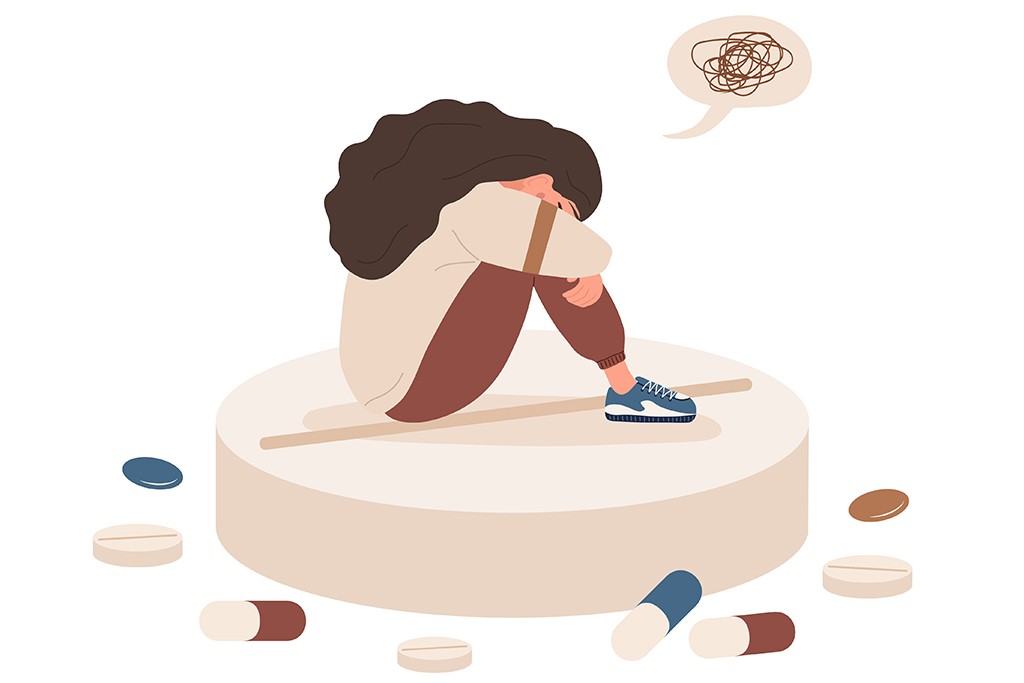A Simple Guide to Understand Side Effects of Antidepressants
A Simple Guide to Understand Side Effects of Antidepressants
Antidepressants are like guiding lights for people dealing with mood troubles. But just like any journey, there can be bumps along the way. These bumps are called side effects, and it’s important to know about them. This article is here to help you learn about the different side effects that can come with using antidepressants. This way, you can make smart choices and talk openly with your doctor about how you feel.
Some side effects are common and usually go away. For instance, when you start taking antidepressants, your tummy might feel funny, and you could feel like throwing up. But don’t worry, this usually gets better with time. These medicines can also affect your sleep. You might find it hard to sleep or feel very tired. Some people also notice changes in their love life, like not feeling as interested in it.

Sometimes, you might notice changes in your weight – either gaining a bit or losing some. Also, your mood can be a bit up and down at first. You might feel more anxious or jittery, but remember, this can be temporary.
There are other side effects that are rarer but more serious. Some medicines might make you feel like you have too much energy. Your heart could race, and your body might not feel right. This is very uncommon, but if it happens, it’s important to tell your doctor. Another rare thing is that your body’s salt levels could get messed up. This might cause confusion, headaches, or even seizures.

Antidepressants are designed to help you feel better and reduce thoughts of hurting yourself. But sometimes, especially when you start taking them, you might actually have thoughts of hurting yourself. It’s strange, but it can happen. Just let your doctor know if you feel this way.
Lastly, if you stop taking these medicines suddenly, your body might react strangely. You could feel dizzy, have flu-like symptoms, or your mood might change. So, if you want to stop, it’s best to do it with your doctor’s advice.
To sum up, talking openly with your doctor is super important. They’ll help you understand these side effects and how to manage them. The goal is to make your journey to feeling better as smooth as possible. So, remember, your doctor is your travel buddy on this road to better mental health.


